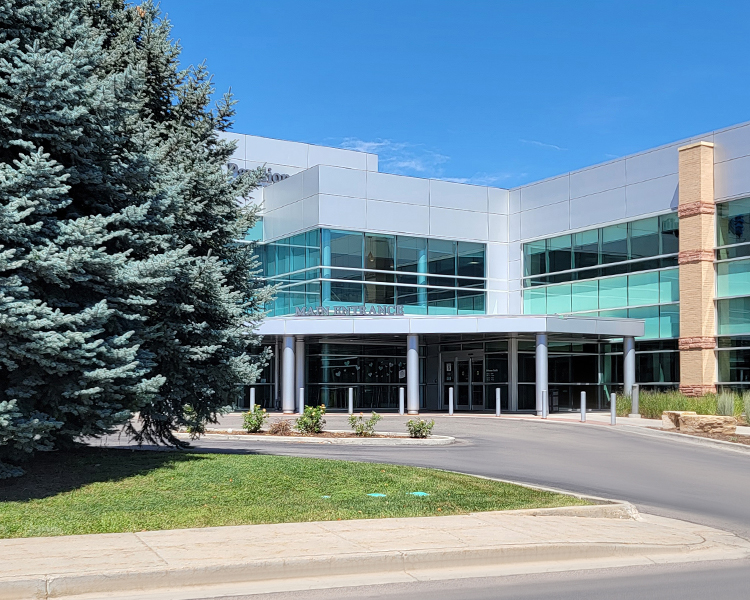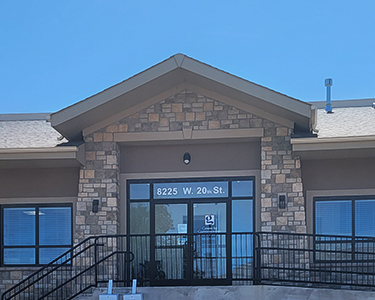Quick Links
The liver plays an incredibly important role in the body and is crucial in maintaining overall health and well-being. It is an important filter device, and it also helps to break down nutrients, turning them into energy for the body, making it a key component of the digestive process. Issues or conditions affecting the liver can vary greatly, but they can all produce uncomfortable and, at times, dangerous symptoms for patients. Our team at Centers for Gastroenterology is trained to effectively diagnose various diseases affecting the liver.
What Are the Causes of Liver Disease?
Liver disease can be caused by a variety of factors, depending on the condition. In some cases, an exact cause may not be able to be identified. In others, a culmination of factors may be at play. Abuse of alcohol is commonly associated with liver disease, as well as the overconsumption of certain medications. Genetics, infection, and immune issues are often linked to disease of the liver.

What Are the Different Types of Liver Disease?
There are several categories of diseases that affect the liver. Understanding the types of liver disease is important, as the underlying cause will affect the treatment you receive.
Infections
Various infections can lead to inflammation or other issues in the liver, including:
- Hepatitis A is typically spread through fecal matter and may not cause noticeable symptoms. It typically resolves within a matter of months and is not usually linked to future complications.
- Hepatitis B can be spread through contact with someone who is infected through certain activities, such as unsafe sex or the consumption of illicit substances, particularly with the use of needles. It can resolve on its own, but if it becomes chronic, or lasts longer than a 6-month period, it can lead to other, more serious complications.
- Hepatitis C is spread through contact with an infected person’s blood. Needles are a common vehicle for transmission. Symptoms can stay dormant until the liver sustains significant damage. It may resolve itself or become chronic.
Immune System Issues
Immune system issues can harm the body’s ability to combat viruses and bacteria, and they can also harm the body, including the liver.
- Autoimmune hepatitis results in inflammation of tissue within the liver and can lead to serious complications, including liver failure.
- Primary biliary cholangitis affects the bile ducts, or small tubes in the liver that carry bile. Bile being backed up can cause scarring of the liver, leading to further complications.
- Primary sclerosing cholangitis can lead to scarring and blockage of bile ducts, causing decreased function of the liver.
Liver Conditions
Liver cancers sometimes emerge in the liver first, but they can also spread to the area from another part of the body.
Inherited liver conditions occur when there is a history of liver conditions within a patient’s family. As with many conditions, genetics can play a vital role.
- Hemochromatosis leads to excess buildup of iron, which can cause serious complications, including decreased function of the liver.
- Wilson’s disease causes a buildup of copper in the liver. This condition is often diagnosed at a young age and can affect other parts of the body, including the nervous system.
- Alpha-1 antitrypsin deficiency involves incorrect liver production of the alpha-1 antitrypsin chemical, which is crucial in helping the body, particularly the lungs, combat infections.
3 Benefits of Probiotics
3 Benefits of Probiotics What are probiotics? While you may usually want to steer clear of bacteria, probiotics are a form of live bacteria…
Continue ReadingHow is Liver Disease Treated?
Medications may be prescribed, particularly for infections of the liver. Lifestyle changes are also a common and, in some cases, very effective solution. Decreasing alcohol consumption and increasing intake of fiber may help improve liver health. In some cases, if the liver is significantly damaged, a liver transplant may be a viable option for patients.
Contact Us Today to Talk About Liver Diseases
If you’re concerned about symptoms you or a loved one may be experiencing, Centers for Gastroenterology would love to help ease your mind and work with you to develop a plan of treatment. Contact us today to schedule an appointment for a consultation with one of our experienced physician assistants. For your convenience, you may view and download our patient forms prior to your appointment.








